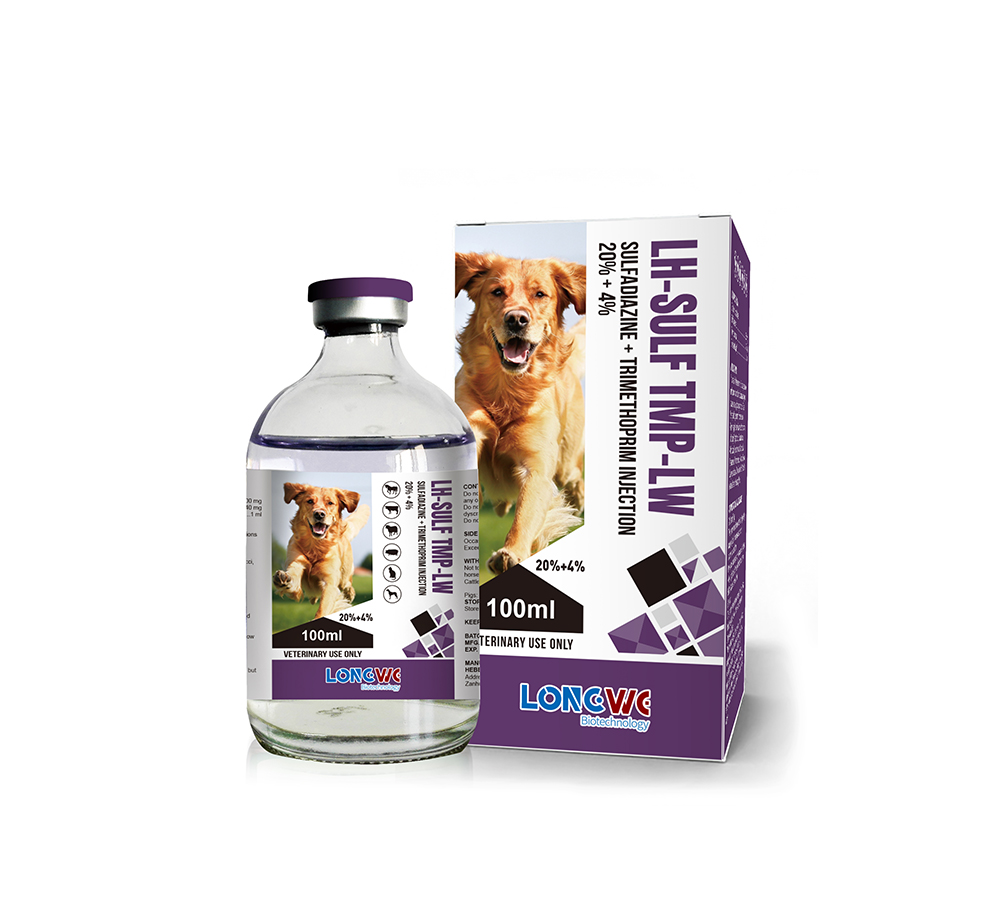
 1. Mechanism of Action
1. Mechanism of Action
Sulfadiazine (20%): A sulfonamide antibiotic that inhibits bacterial dihydropteroate synthase, blocking the synthesis of dihydrofolic acid, which is essential for bacterial growth.
Trimethoprim (4%): Inhibits bacterial dihydrofolate reductase, preventing the formation of tetrahydrofolic acid, further disrupting bacterial DNA and protein synthesis.
Synergistic Effect: The combination of Sulfadiazine and Trimethoprim provides a dual blockade of the folate metabolism pathway, enhancing antibacterial efficacy and reducing the risk of resistance.
Effective against a wide range of Gram-positive and Gram-negative bacteria, including:
Staphylococcus spp.
Streptococcus spp.
Escherichia coli
Salmonella spp.
Klebsiella pneumoniae
Used to treat infections caused by susceptible bacteria, such as:
Respiratory tract infections
Urinary tract infections
Gastrointestinal infections
Soft tissue infections
Septicemia (bloodstream infections)
Administered via intramuscular (IM) or intravenous (IV) injection.
Dosage and duration of treatment should be determined by a healthcare professional based on the severity of the infection and patient condition.
Contraindicated in patients with known hypersensitivity to sulfonamides or trimethoprim.
Use with caution in patients with impaired liver or kidney function.
Potential side effects include allergic reactions, gastrointestinal disturbances, and hematological abnormalities.
Sulfadiazine + Trimethoprim Injection 20% + 4% is a synergistic antibiotic combination effective against a broad spectrum of bacterial infections. It works by dual inhibition of folate metabolism, but its use should be guided by a healthcare professional, considering potential side effects and contraindications.